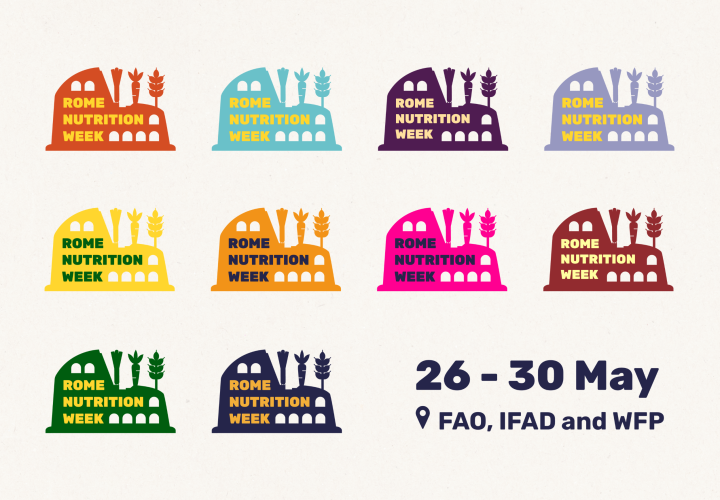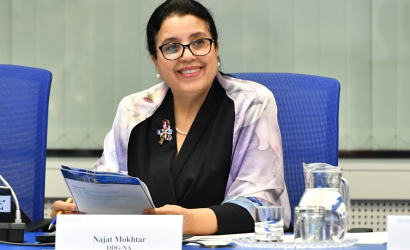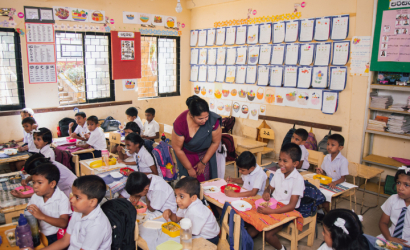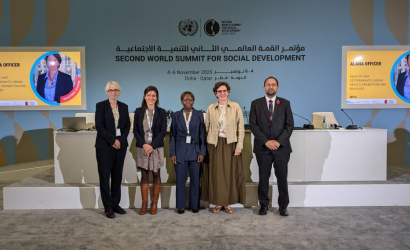Malnutrition remains one of the most urgent and complex challenges of our time. As of 2022, nearly 2.8 billion people could not afford a healthy diet, and millions of children under five years were stunted, wasted, or overweight. More than half the global population lacks sufficient intake of essential micronutrients—undermining health, development, and resilience. These figures are not just statistics; they reflect the daily reality of communities facing conflict, climate shocks, and economic hardship.
In response, a coalition of member states—working closely with the Rome-Based Agencies (RBAs) and other nutrition stakeholders—launched Rome Nutrition Week in 2024 as a platform to elevate nutrition on the global agenda. Now in its second edition, Rome Nutrition Week 2025 (26–30 May) was co-hosted by UN-Nutrition alongside FAO, IFAD, and WFP. Under the theme “Coherent Policy and Action for Better Nutrition,” this year’s gathering raised the visibility of nutrition issues, embedded agrifood systems thinking into nutrition strategies (and vice versa), strengthened policy coherence at all levels, and sustained the momentum from global milestones like the Nutrition for Growth Summit.
A Powerful Opening Message
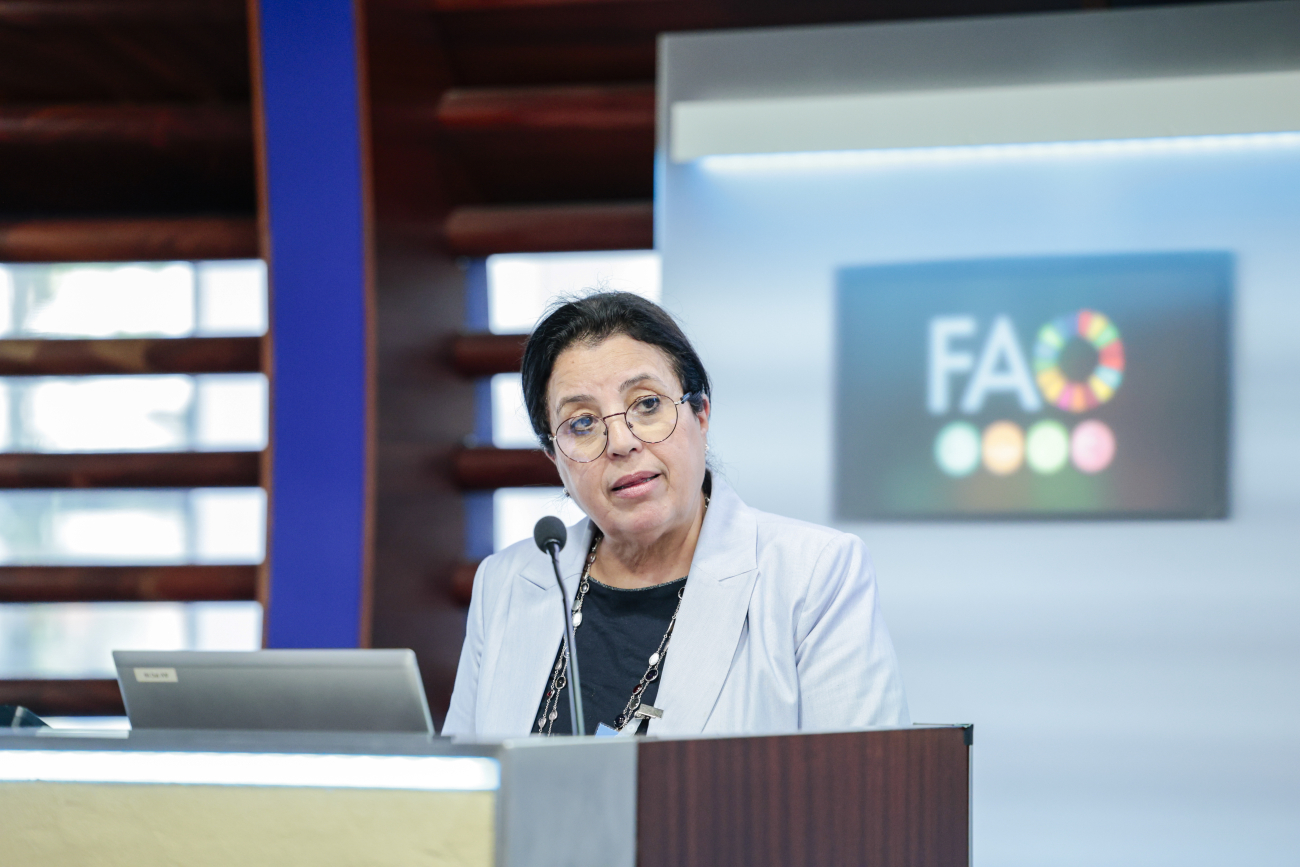
In her opening remarks, Dr. Najat Mokhtar, Chair of UN-Nutrition and Deputy Director General of the IAEA, set the tone for the week with a compelling call to action:
“Policy coherence and coordination are not optional—they are essential,” she said, outlining five reasons why this is important: strategic alignment, efficiency, smarter decisions, agility, and influence.
She also reminded us that coherence is not just a technical fix—it’s a moral imperative:
“In our world of plenty, it is outrageous that a person dies of hunger every few seconds. And it is equally outrageous that millions of survivors suffer from malnutrition—depriving them of health, opportunity, and dignity.”
Her message was clear: “We must unite. We must align. Because policy coherence isn't just a strategy—it’s our strongest lever to scale up nutrition action, transform food systems, and deliver healthy diets for all.”
From Vision to Action: A Unified Call for Coherent Nutrition Leadership
Held during the week that World Nutrition Day is celebrated, the high-level flagship event was the central moment of Rome Nutrition Week 2025. It brought together UN senior leadership, Permanent Representatives, and global stakeholders to reaffirm the critical role of nutrition in achieving sustainable development. Speakers emphasized that despite progress, malnutrition remains a leading driver of child mortality and a barrier to equity and resilience. In his words, QU Dongyu, Director-General of FAO, captured the urgency of systemic change:
“To transform agri-food systems to be more efficient, more inclusive, more resilient, and more sustainable is critical to achieving better nutrition and presents an unprecedented opportunity to nourish both people and the planet.”
Álvaro Lario, President of IFAD, reinforced this message, stating:
“Nutrition is not a side issue—it is central to development and also to our core IFAD mandate,” and added,
“Our common challenge is not just to feed the world, but to nourish it.”
The event underscored the need for stronger policy coherence and cross-sector collaboration between food, health, environment, and economic systems. Valerie Guarnieri, Assistant Executive Director of WFP, called for a shift in mindset:
“We must move from coordination to coherence—aligning our policies, our planning, our implementation, and measuring our results more closely around shared nutrition goals.”
Afshan Khan, Assistant Secretary-General of the UN and Global Coordinator of the SUN Movement, emphasized that:
“Integration doesn’t happen by accident. It needs political will, technical capacity, reliable data, and sustainable financing—coordinated across donors, UN agencies, and national initiatives.”
These calls to action resonated throughout the week’s dynamic programme. Over five days, Rome Nutrition Week 2025 hosted more than 20 events—ranging from high-level panels and technical roundtables to regionally focused dialogues and grassroots showcases. Sessions explored a wide spectrum of themes, including food fortification, agroecological practices, school meals, gender equality, climate-nutrition integration, and regulatory reform. The sessions brought together voices from governments, UN agencies, academia, civil society and the private sector, fostering rich, cross-sector conversations. Whether addressing the role of biodiversity in nutrition policy or showcasing locally led action in humanitarian settings, the Rome Nutrition Week created space for evidence-sharing, policy innovation, and practical collaboration—anchored in the shared goal of advancing coherent, country-led solutions for better nutrition.
Looking Ahead: Sustaining Momentum for Nutrition Action
Rome Nutrition Week 2025 made one thing clear: the global nutrition community is united in its resolve to act. From high-level leadership to grassroots innovation, the week showcased how coherence, collaboration, and country-led solutions are not only possible—they are already underway. The urgency of the nutrition crisis, especially in fragile and crisis-affected contexts, demands that we move beyond fragmented efforts and toward integrated, sustained action.
As the world looks ahead to the UN Food Systems Summit +4 Stock take and COP30, the message from Rome must be carried forward: nutrition is not a siloed issue—it is foundational to health, equity, climate resilience, and sustainable development. The challenge now is to turn commitments into concrete actions and results, ensuring that every policy, every investment, and every partnership embeds nutrition at its core. Because when we act together, we don’t just feed the world—we nourish it.
